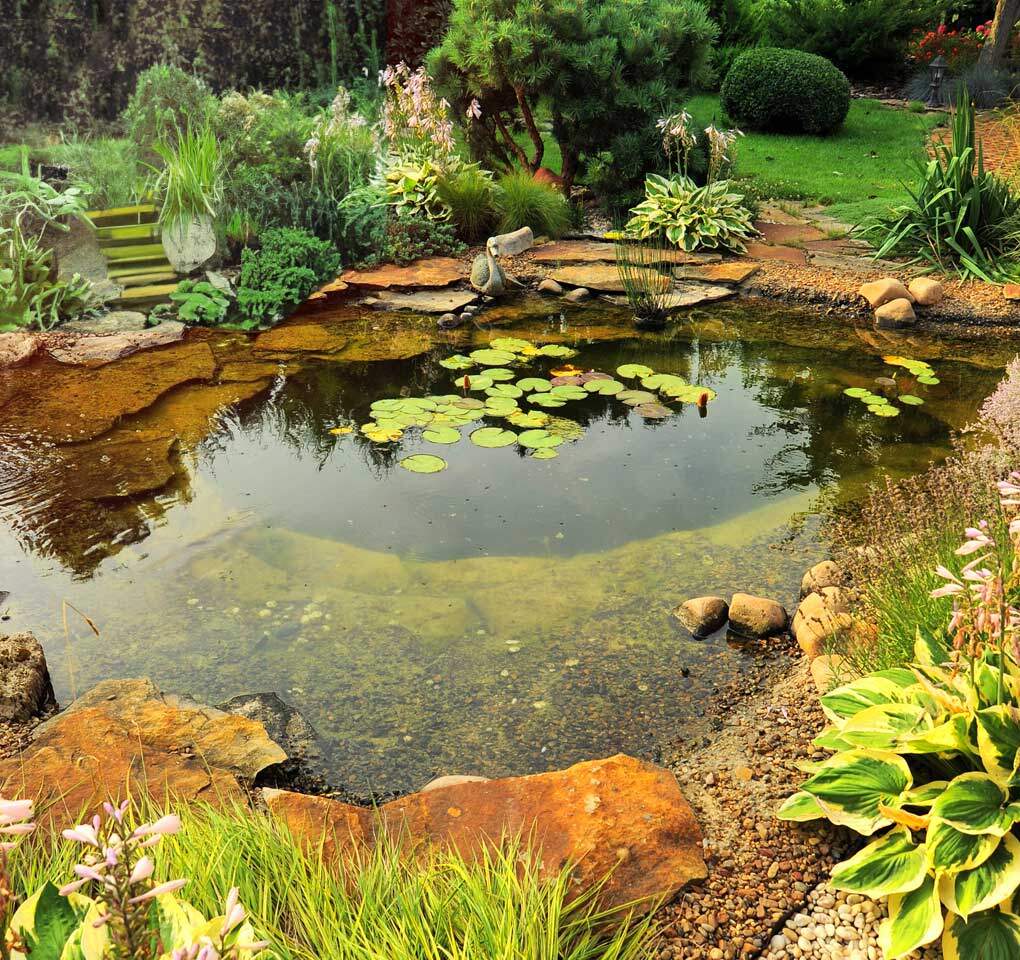Each summer, usually starting in late July and accelerating into early August, we hear about fish kills from pond owners. By the time dying fish are observed in ponds, it is often too late to save them. But by understanding the causes of summer fish kills, actions can be taken now to help prevent fish loss in your pond.
Summer fish kills can be caused by a variety of reasons. Fish kills are most commonly linked to oxygen reduction within pond waters caused by prolonged hot dry weather conditions, heavy cold rains or to rapid algae blooms.
A pond is an ecosystem that requires a delicate balance to thrive. When that balance is disturbed, fish health suffers. Fish, like other complex life forms, need oxygen to survive. When a stretch of hot, dry weather occurs, oxygen levels in your pond may decrease to less than 6.0 ppm. As pond water increases in temperature it has less ability to hold adequate levels of dissolved oxygen when compared to cool water. What can you do to reduce this condition? Turn on your aeration system and monitor the oxygen level or the actions displayed by the fish. Fish try to gulp oxygen on the surface for a reason.
Large algae blooms often add to the problem. Nutrient-rich ponds often produce dense blooms of algae. A sudden algae die-off can occur following consecutive days of cloudy, hot, windless conditions. The sudden die-off leads to a rapid decomposition of the dead algae. The decomposition of dead plant material consumes a large amount of oxygen, resulting in dangerously low levels of dissolved oxygen in the water. Fish are stressed and die if the new day is heavily overcast and the photosynthetic production of oxygen is delayed or reduced.
Sometimes, too many sub-surface plants in a pond are part of the problem. Macrophytes release carbon dioxide through respiration and consume large amounts of oxygen at night, causing a temporary oxygen shortage just before dawn. Fish stressed from low oxygen levels will be at the surface just before sunrise. Get up early and take your coffee with you to look at your pond.
Fish kills can also occur when high wind or cold rain disturb thermally stratified water to the point where deoxygenated water from deep areas mixes throughout the water column. Cold rain water is charged with nitrogen and has a higher density so it sinks. You might observe the fish along the shoreline in shallow water still alive but swimming rather lithargic.
What can you do?
With some knowledge and preventive measures, you may be able to avoid a fish pond emergency. First, don’t feed your fish on cloudy, stormy days. Second, consider installing a simple aeration system that is powered by electricity and can be turned on quickly when needed. If the nearest source of 120 volt power is within 2000 feet of your pond, you are all set because air can be pushed through a plastic pipe that distance with a small compressor.. Fountains help and so will a windmill aerator providing the wind blows when needed. Consider the value and enjoyment you get from a pond full of fish and pick the best solution to minimize the re-occurance of this problem.
Contact us if we can help.






